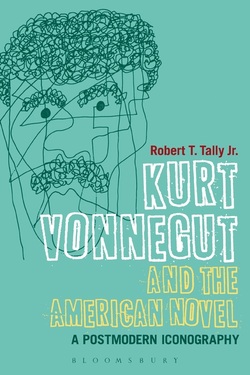Kurt Vonnegut and the American Novel: A Postmodern Iconography (London & New York: Continuum, 2011).

The novels of Kurt Vonnegut depict a profoundly absurd and distinctly postmodern world. But in this critical study, Robert Tally argues that Vonnegut himself is actually a modernist, who is less interested in indulging in the free play of signifiers than in attempting to construct a model that could encompass the American experience at the end of the twentieth century. In analyzing the work of this untimely writer, Tally draws on philosophy, literature, and critical theory, including theories of postmodernity, to show how Vonnegut’s novels attempt to grapple with the contradictions of his age, often in revealing and humorous ways.
Contents: Acknowledgements, Preface: And So On ..., 1. A Postmodern Iconography, 2. Misanthropic Humanism: Player Piano and The Sirens of Titan, 3. Anxiety and the Jargon of Authenticity: Mother Night, 4. The Dialectic of American Enlightenment: Cat's Cradle and God Bless You, Mr. Rosewater, 5. Eternal Returns, or, Tralfamadorian Ethics: Slaughterhouse-Five, 6. Anti-Oedipus of the Heartland: Breakfast of Champions, 7. Imaginary Communities, or, the Ends of the Political: Slapstick and Jailbird, 8. Abstract Idealism: Deadeye Dick and Bluebeard, 9. Apocalypse in the Optative Mood: Galapagos, 10. Twilight of the Icons: Hocus Pocus and Timequake.
Praise for Kurt Vonnegut and the American Novel
"Kurt Vonnegut and the American Novel is an exciting re-evaluation of this much overlooked author's work. Tally deftly rereads Vonnegut's novels, situating them in an American tradition of fiction that seeks to make sense of the larger American experience. This book skilfully interweaves a germane selection of literary and critical theory to convincingly argue that Vonnegut should be reassessed as a substantial Modernist rather than Postmodernist writer." David Simmons, Lecturer in American Literature, Film and Television Studies, Northampton University, UK
"Robert Tally's book makes a serious scholarly contribution not only to Vonnegut studies, but to the field of contemporary American literature in general. Arguing persuasively that Vonnegut is a 'reluctant postmodernist,' a 'misanthropic humanist' with modernist longings, Tally situates his readings of Vonnegut's fourteen novels amid recent critical debates about American literature, about postmodernism, and about what it means to be a human being. The book is that rarest of academic works, at once critically well-informed and eminently readable." Susan Farrell, Professor of English, College of Charleston, USA
"A Melville as well as a Vonnegut scholar, Tally (Texas State Univ.) grapples with Vonnegut's novels as attempts, albeit failed ones, at writing the 'great American novel.' In Tally's view, this project constitutes partly an attempt to 'grasp the essence of American life at its moment.' Recommended. Upper division undergraduates and above." L. A. Brewer, Fortis College – CHOICE Reviews
"Robert Tally In Kurt Vonnegut and The American Novel: A Postmodern Iconography, argues that Vonnegut's work is 'untimely' in that he writes as a modernist stuck 'in a postmodern condition.' Tally then uses this distinction to drive a wide-ranging discussion of postmodernism and other theories relevant to reading Vonnegut claiming that Vonnegut employs the novel form to construct a postmodern iconography. The result is a very readable, highly original, clearly focused monograph." Donald E. Morse, University of Debrecen, author of The Novels of Kurt Vonnegut: Imagine Being an American
